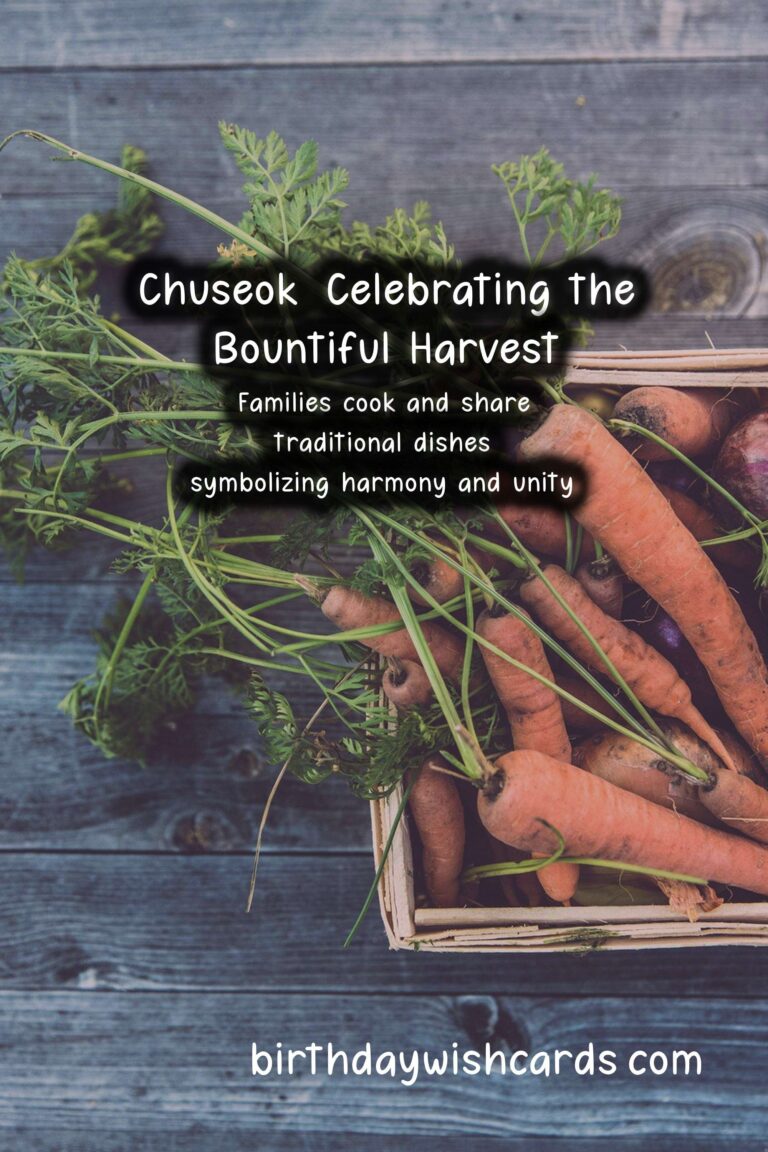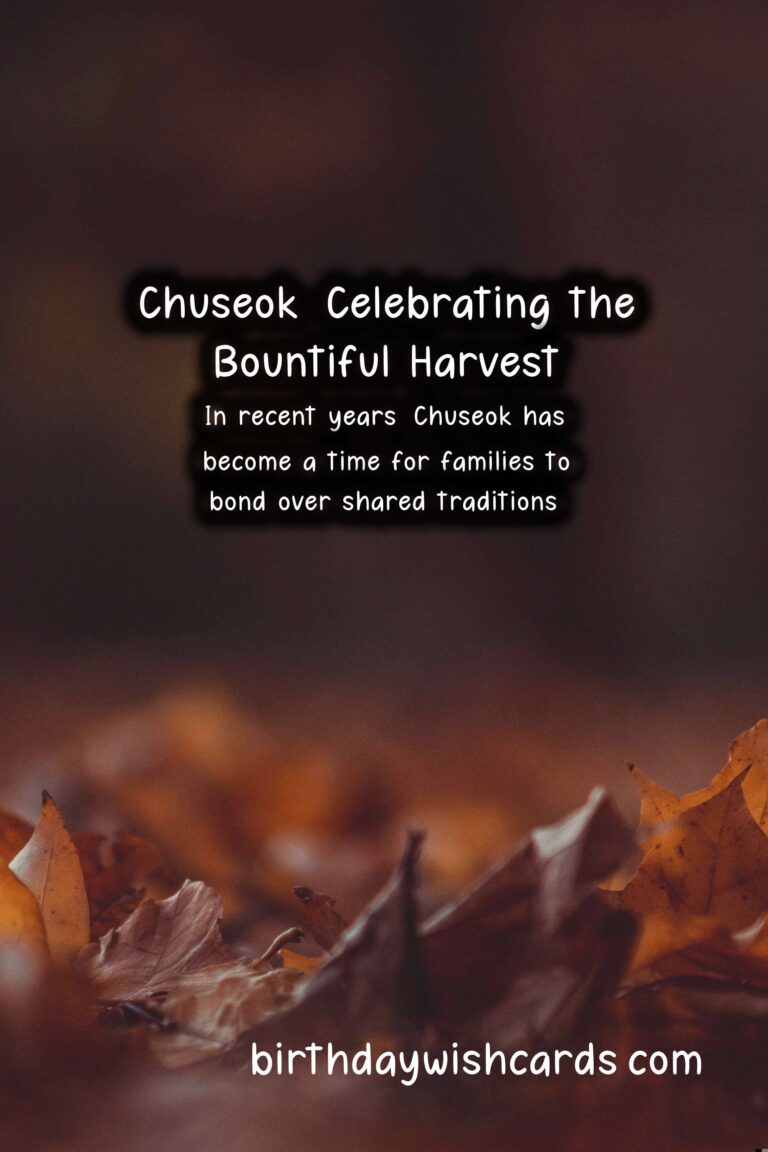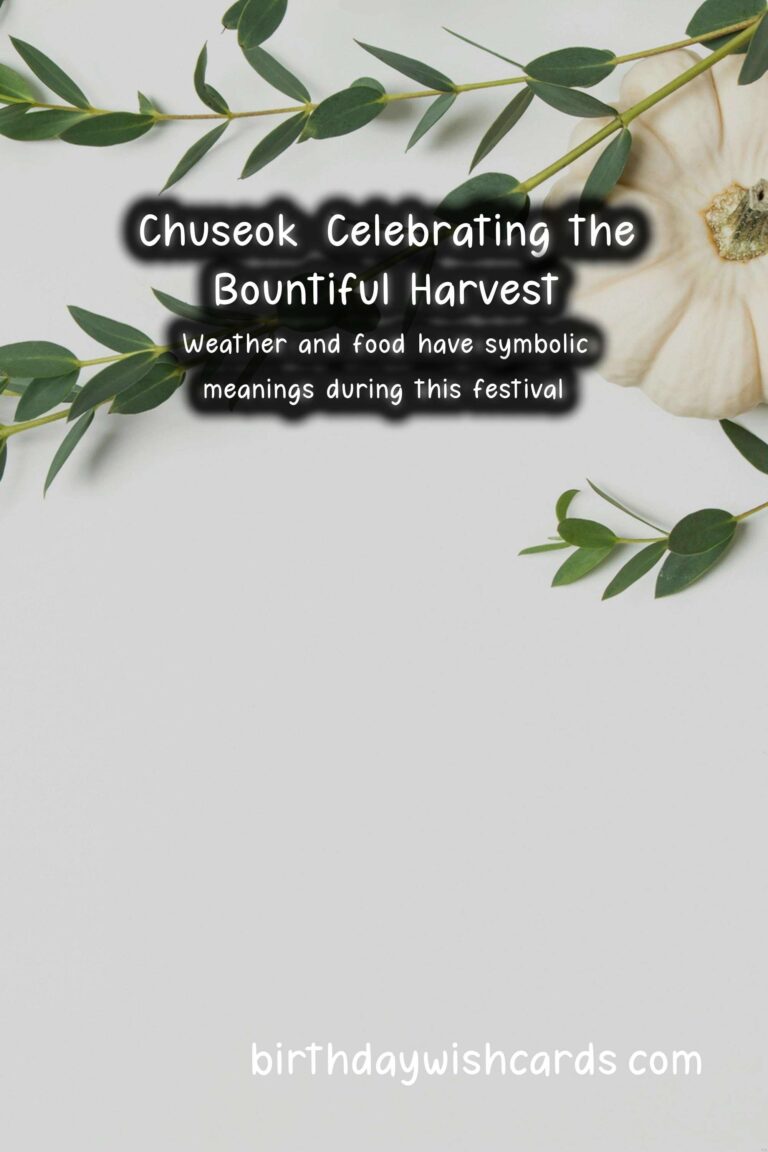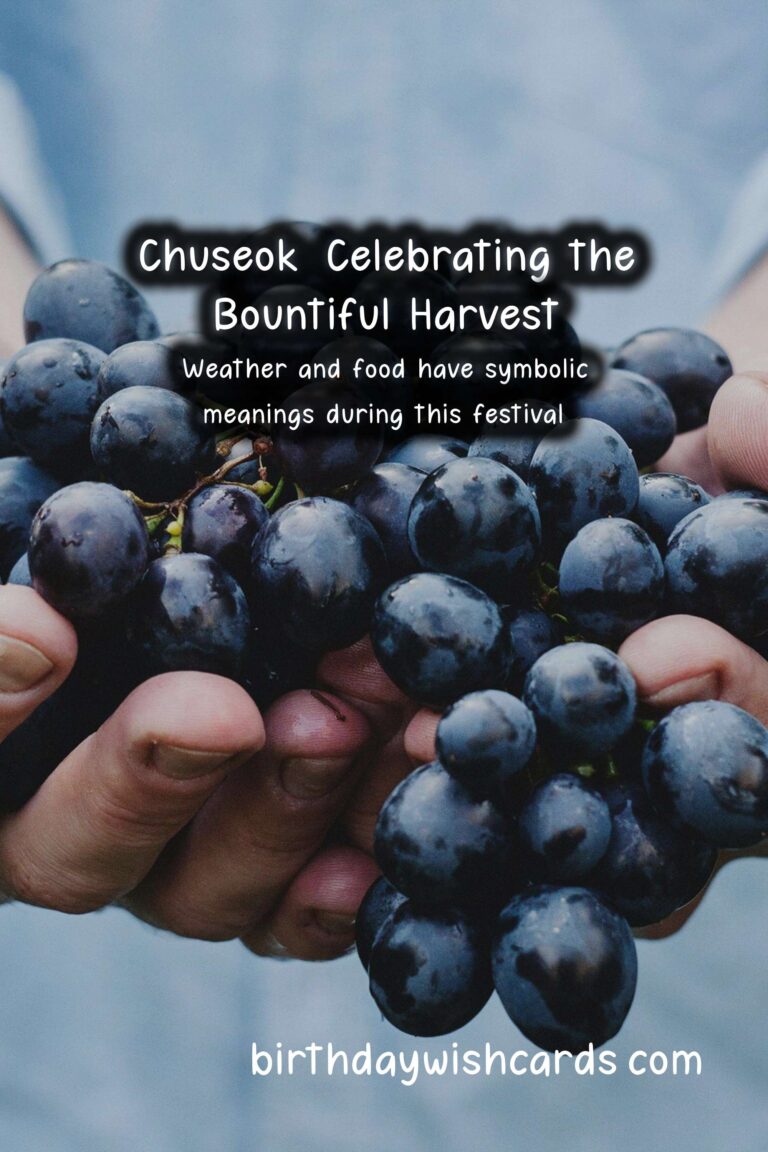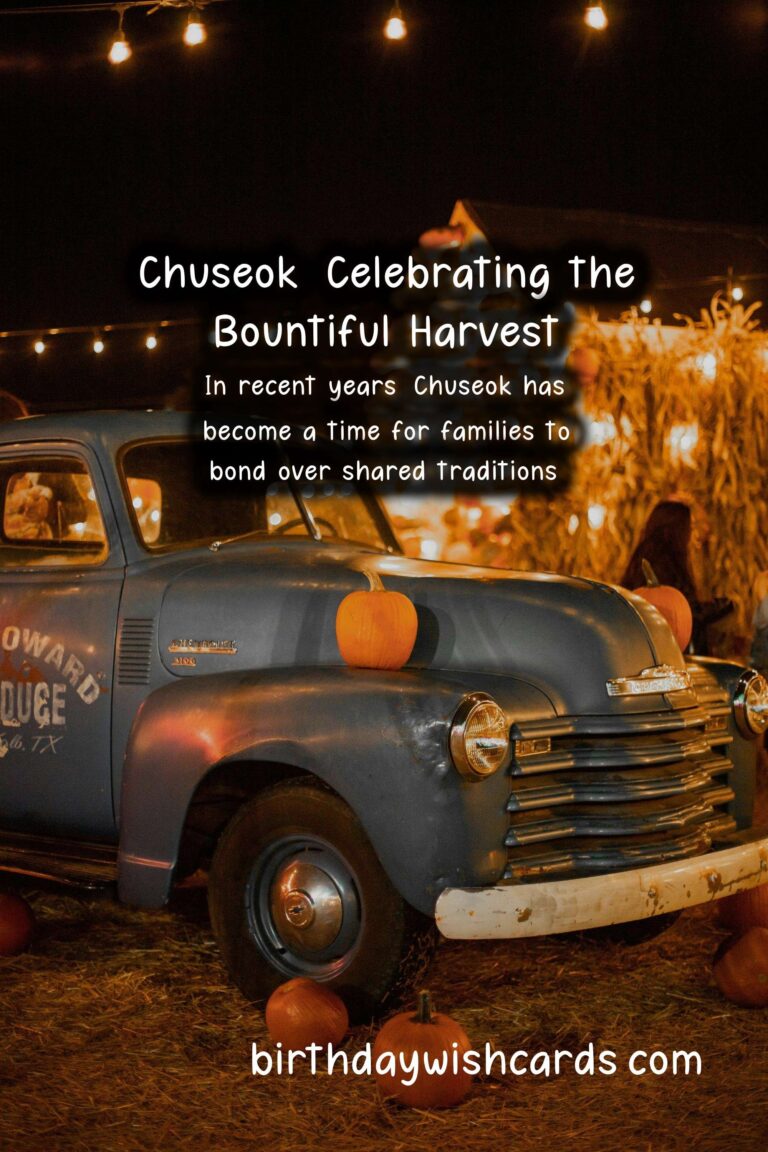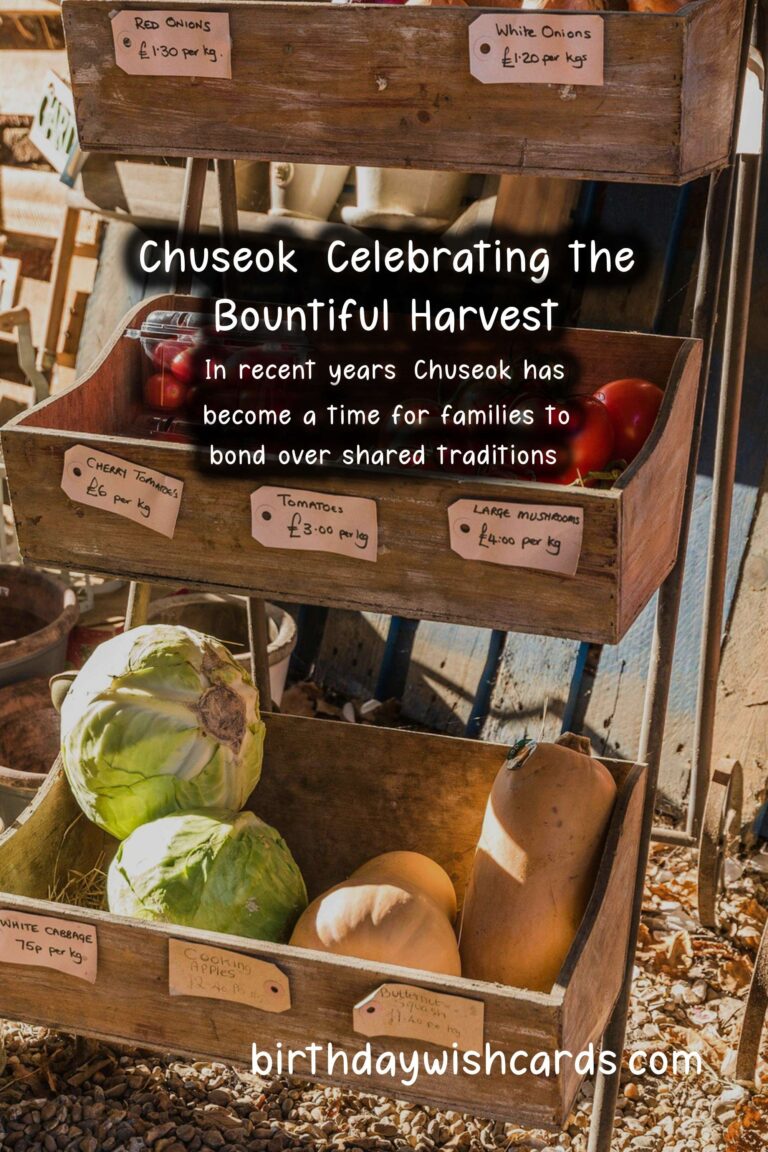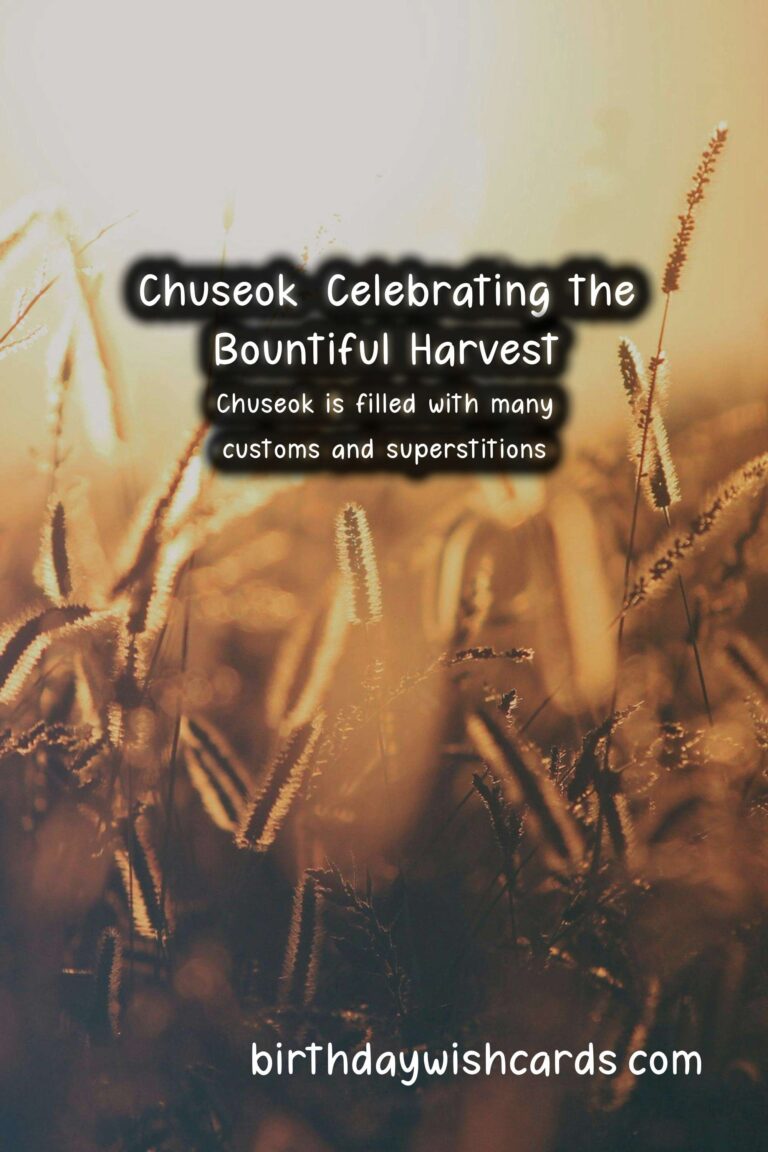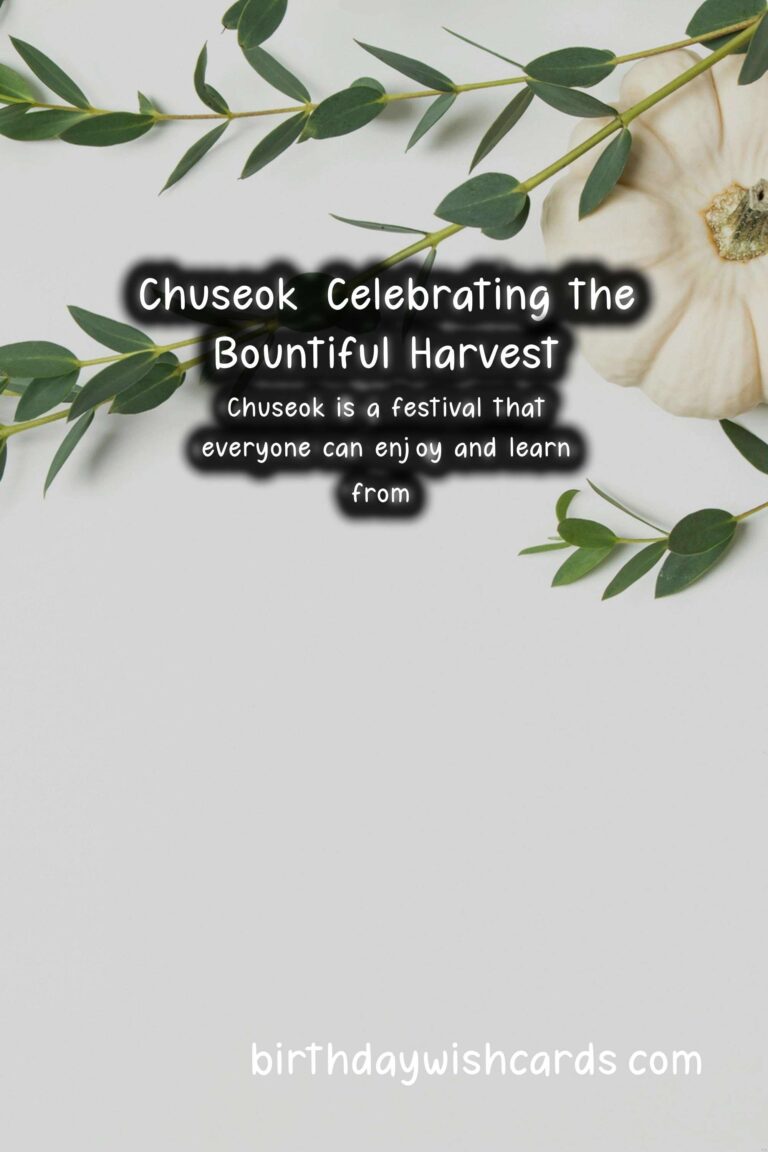 Chuseok, also known as Hangawi, is a traditional Korean holiday that is celebrated on the 15th day of the 8th lunar month. This year, the date falls on September 9. It is one of the most important festivals in Korea and is similar to the American holiday of Thanksgiving. It is a time to give thanks for the abundant harvest and to honor family and ancestors. Let’s take a deeper look into this cultural event and discover the significance of Chuseok.According to tradition, Chuseok originated from the ancient shamanistic harvest festival called Gabae. This festival was held to give thanks to the spirits of the deceased ancestors for the year’s harvest and to pray for a bountiful harvest in the next year. During the Gabae festival, families would gather together and offer food and wine to their ancestors to receive their blessings. Over time, the celebration evolved and merged with Confucian traditions, which placed great importance on ancestor worship.One of the most significant rituals during Chuseok is the Charye. This is a memorial service that is held to honor the ancestors and pay respect to their spirits. Families gather at the ancestral gravesite and offer a variety of foods, including rice, liquor, and fruits. They also clean and tidy up the gravesite and show their appreciation for their ancestors’ sacrifices. This ritual is believed to bring good fortune and blessings to the family.Another important aspect of Chuseok is the sharing of food and drinks. Families come together to cook and enjoy traditional Korean dishes, such as Songpyeon (rice cake), Galbijjim (braised beef short ribs), and Japchae (stir-fried noodles). These dishes are made with the fresh ingredients from the harvest, and the act of sharing them symbolizes unity and harmony among family members.Apart from the traditional rituals, there are also many fun activities that people can participate in during Chuseok. One of the most popular is the Ganggangsullae dance, where a group of women wearing traditional dresses dance in a circle while singing folk songs. This dance is a symbol of solidarity and cooperation among the community. There are also various games and events, such as tug-of-war, kite-flying, and archery competitions.As with any traditional festival, Chuseok is filled with interesting customs and superstitions. For instance, it is believed that if the weather is clear on Chuseok, it will be a good sign for the upcoming winter, which is important for the harvest. On the other hand, if it rains, it is considered a sign of bad luck.Furthermore, the foods that are served during Chuseok also hold symbolic meanings. Songpyeon, a half-moon-shaped rice cake, represents a full moon and is a symbol of a wish for a bountiful harvest in the upcoming year. Apples, chestnuts, and other fruits are also important offerings as they represent abundance and prosperity.In recent years, Chuseok has become more than just a traditional harvest festival. It is now a time for families to reconnect and bond over shared traditions and celebrations. It is also a time for Koreans, both in and outside of the country, to reflect on their cultural heritage and take pride in their customs and traditions. So this year, as we celebrate Chuseok, let’s take a moment to appreciate the bountiful harvest and show gratitude to our ancestors who have paved the way for our present.Whether you are Korean or not, Chuseok is a festival that everyone can enjoy and learn from. From the rituals of honoring ancestors to the delicious food and fun activities, there is something for everyone. So celebrate the autumn season and the bountiful harvest on September 9 with the amazing and exciting festival of Chuseok. Chuseok is a traditional Korean holiday that is celebrated on September 9 this year. It is a time to give thanks for the abundant harvest and to honor family and ancestors. This festival originated from the ancient harvest festival called Gabae. The Charye ritual is held to honor ancestors and receive their blessings. Families cook and share traditional dishes, symbolizing harmony and unity. Ganggangsullae dance, tug-of-war, and other games and events are popular during Chuseok. Chuseok is filled with many customs and superstitions. Weather and food have symbolic meanings during this festival. In recent years, Chuseok has become a time for families to bond over shared traditions. Chuseok is a festival that everyone can enjoy and learn from.
Chuseok, also known as Hangawi, is a traditional Korean holiday that is celebrated on the 15th day of the 8th lunar month. This year, the date falls on September 9. It is one of the most important festivals in Korea and is similar to the American holiday of Thanksgiving. It is a time to give thanks for the abundant harvest and to honor family and ancestors. Let’s take a deeper look into this cultural event and discover the significance of Chuseok.According to tradition, Chuseok originated from the ancient shamanistic harvest festival called Gabae. This festival was held to give thanks to the spirits of the deceased ancestors for the year’s harvest and to pray for a bountiful harvest in the next year. During the Gabae festival, families would gather together and offer food and wine to their ancestors to receive their blessings. Over time, the celebration evolved and merged with Confucian traditions, which placed great importance on ancestor worship.One of the most significant rituals during Chuseok is the Charye. This is a memorial service that is held to honor the ancestors and pay respect to their spirits. Families gather at the ancestral gravesite and offer a variety of foods, including rice, liquor, and fruits. They also clean and tidy up the gravesite and show their appreciation for their ancestors’ sacrifices. This ritual is believed to bring good fortune and blessings to the family.Another important aspect of Chuseok is the sharing of food and drinks. Families come together to cook and enjoy traditional Korean dishes, such as Songpyeon (rice cake), Galbijjim (braised beef short ribs), and Japchae (stir-fried noodles). These dishes are made with the fresh ingredients from the harvest, and the act of sharing them symbolizes unity and harmony among family members.Apart from the traditional rituals, there are also many fun activities that people can participate in during Chuseok. One of the most popular is the Ganggangsullae dance, where a group of women wearing traditional dresses dance in a circle while singing folk songs. This dance is a symbol of solidarity and cooperation among the community. There are also various games and events, such as tug-of-war, kite-flying, and archery competitions.As with any traditional festival, Chuseok is filled with interesting customs and superstitions. For instance, it is believed that if the weather is clear on Chuseok, it will be a good sign for the upcoming winter, which is important for the harvest. On the other hand, if it rains, it is considered a sign of bad luck.Furthermore, the foods that are served during Chuseok also hold symbolic meanings. Songpyeon, a half-moon-shaped rice cake, represents a full moon and is a symbol of a wish for a bountiful harvest in the upcoming year. Apples, chestnuts, and other fruits are also important offerings as they represent abundance and prosperity.In recent years, Chuseok has become more than just a traditional harvest festival. It is now a time for families to reconnect and bond over shared traditions and celebrations. It is also a time for Koreans, both in and outside of the country, to reflect on their cultural heritage and take pride in their customs and traditions. So this year, as we celebrate Chuseok, let’s take a moment to appreciate the bountiful harvest and show gratitude to our ancestors who have paved the way for our present.Whether you are Korean or not, Chuseok is a festival that everyone can enjoy and learn from. From the rituals of honoring ancestors to the delicious food and fun activities, there is something for everyone. So celebrate the autumn season and the bountiful harvest on September 9 with the amazing and exciting festival of Chuseok. Chuseok is a traditional Korean holiday that is celebrated on September 9 this year. It is a time to give thanks for the abundant harvest and to honor family and ancestors. This festival originated from the ancient harvest festival called Gabae. The Charye ritual is held to honor ancestors and receive their blessings. Families cook and share traditional dishes, symbolizing harmony and unity. Ganggangsullae dance, tug-of-war, and other games and events are popular during Chuseok. Chuseok is filled with many customs and superstitions. Weather and food have symbolic meanings during this festival. In recent years, Chuseok has become a time for families to bond over shared traditions. Chuseok is a festival that everyone can enjoy and learn from. 
